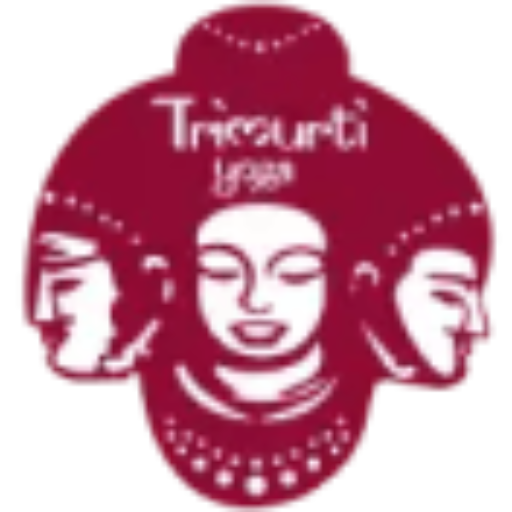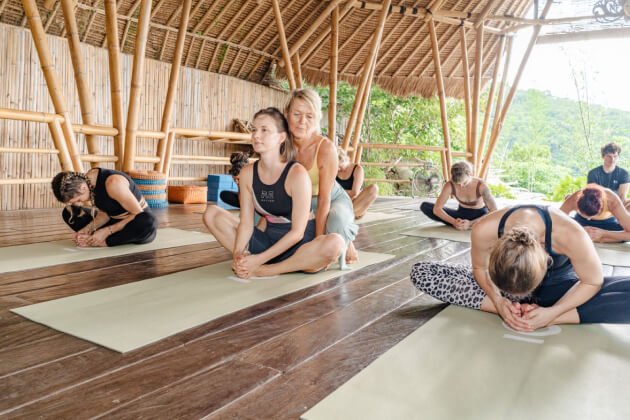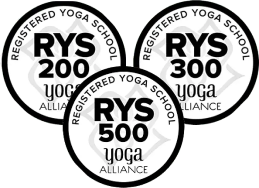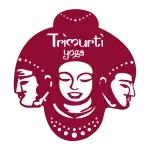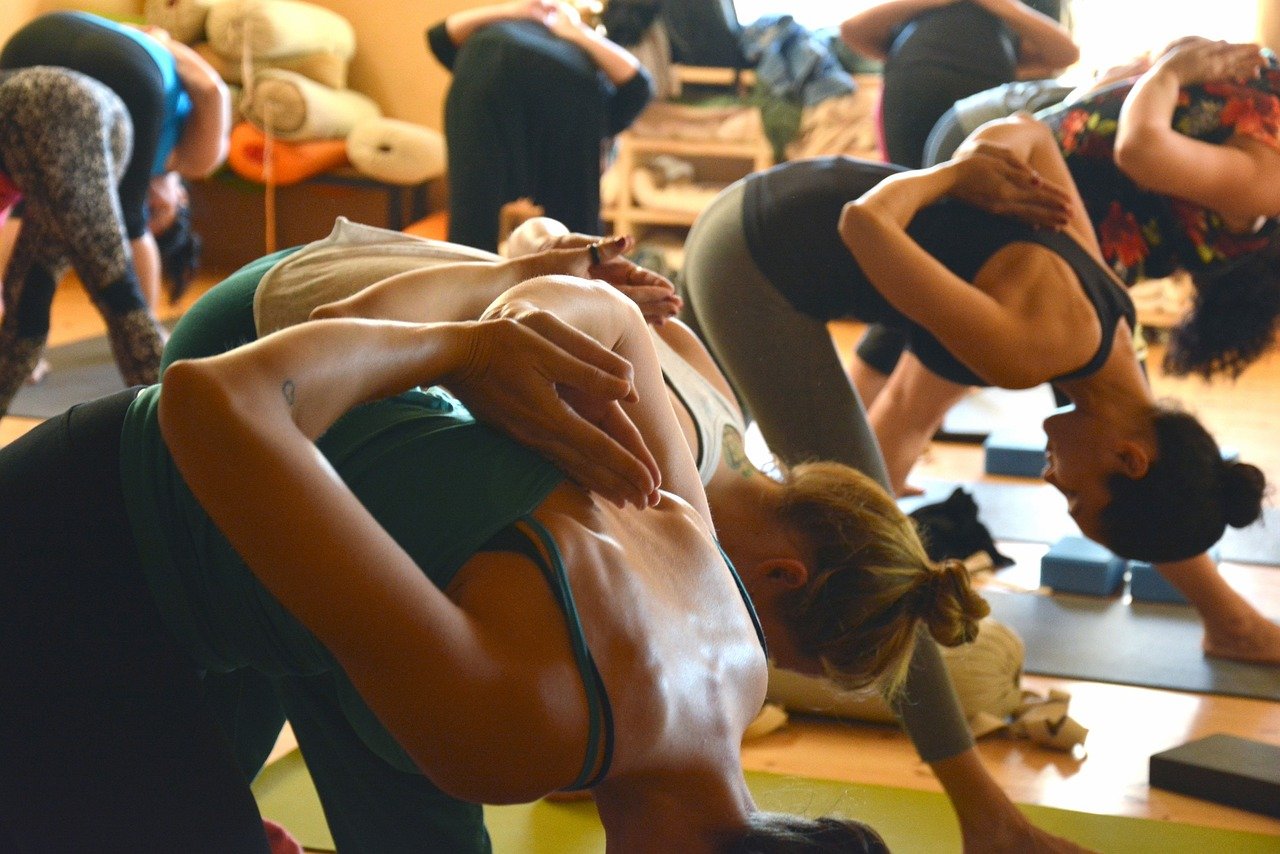
Bali is known for its idyllic beaches and pristine landscapes, but it’s also a hotspot for yoga and meditation teacher training Bali. Offers an excellent opportunity to learn about and practice the ancient practice of yoga. Meditation teacher training in Bali is a powerful way to relax the body and mind and can be used for therapeutic purposes.
Meditation teacher training in Bali provides an immersive experience that will teach you how to lead a class and help participants achieve their goals. The benefits of yoga meditation teacher training in Bali Include increased mental clarity, stress relief, improved balance and coordination, decreased anxiety and depression symptoms, and improved breathing techniques. It improves awareness of our actions & thoughts.
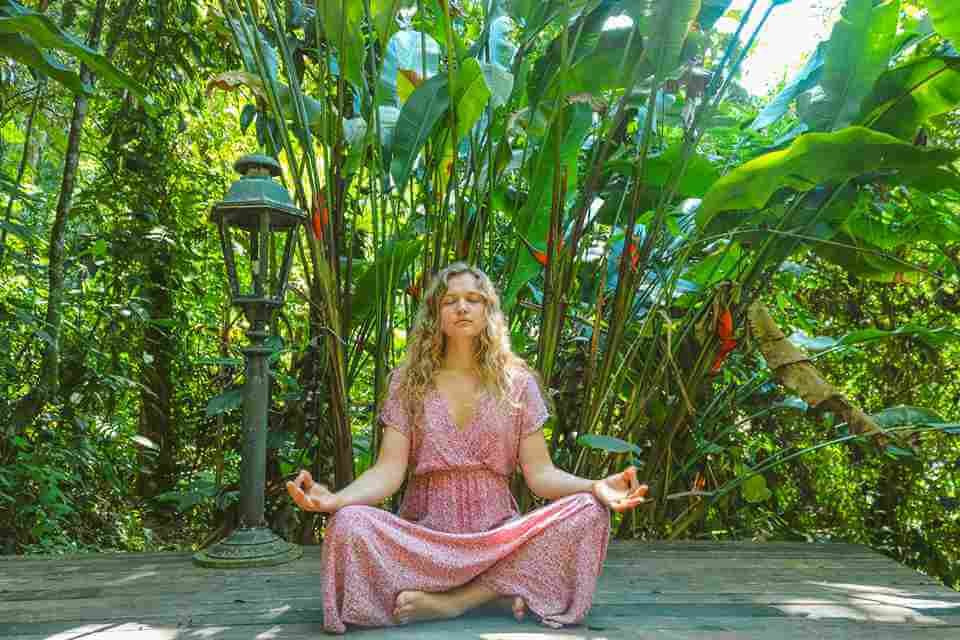
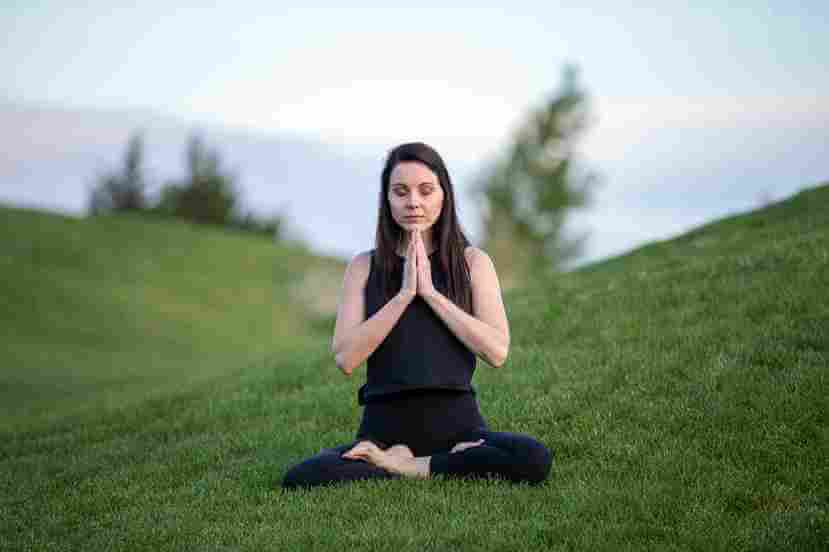
Meditation Teacher Training Bali is a great way to learn about yoga meditation and the culture of Bali. There are many Meditation Teacher Training in Bali programs available, so it’s important to do your research before you go. Many programs offer lodging and meals, so make sure you’re prepared for everything that comes with teaching in Bali. When looking to deepen their practice of yoga, many people turn to Meditation Teacher Training in Bali programs One such program is offered in Bali through Trimurti Yoga Bali.
The benefits of completing a meditation teacher training Bali are many. Students learn how to teach yoga safely and effectively to others. They also gain an understanding of the philosophy and techniques behind the practice, deepening their practice and knowledge overall. Additionally, students learn about Balinese culture and customs which can enhance their experience while practicing.
Table of Contents
ToggleOur Team Provides All These Courses
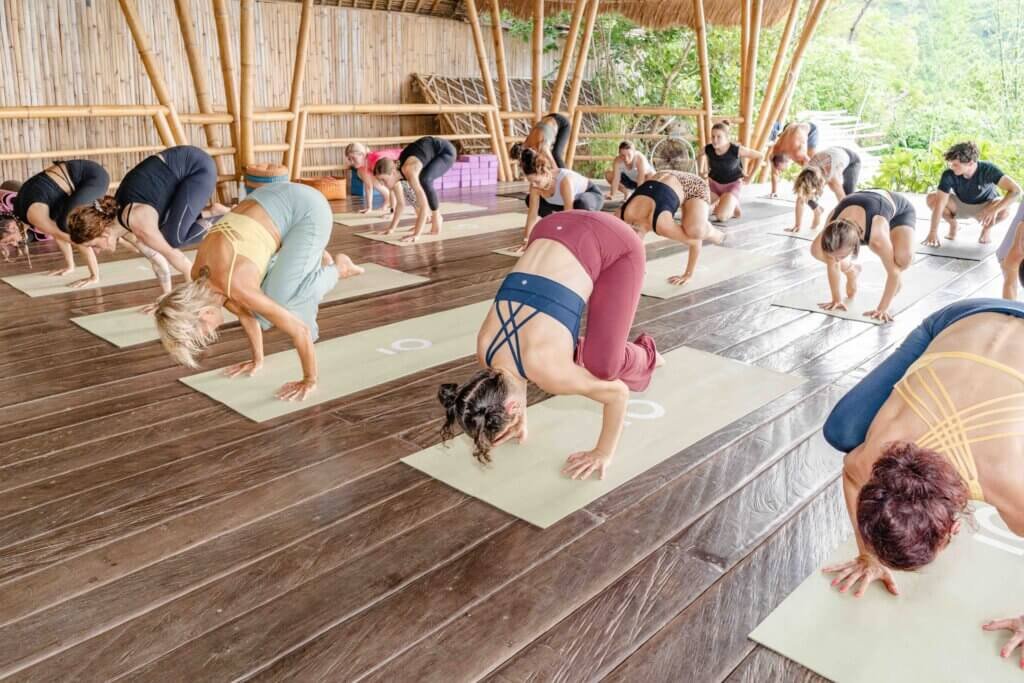
What Is Involved In A Yoga Meditation Teacher Training In Bali?
Trimurti Yoga Bali offers a 200-hour Meditation Teacher Training Course in which we offer 50 hours of Yog Nidra, rest 50 hours is devoted to Pranayama, Vipassana, Kundalini, Chakra & Sound Healing. The course takes you to the inner journey through the Meditation.
What Is Yoga Nidra?
Yoga Nidra, also called sleep-based yoga, is a form of Meditation Teacher Training in Bali that is meant to bring an enhanced relaxed state. It is often used as an aid to insomnia to help people relax and reduce stress, improving sleeping cycles. In yoga nidra, the practitioner enters a deep restful state by focusing on their body, breathing and ultimately going beyond the body and mind.
In the practice of yoga nidra, the body falls asleep, however, they may be aware in their subconscious mind. For example, if you call out the name of your student in the middle of a yoga nidra session they may respond actively. As such, yoga nidra is not meant to be practiced as a form of meditation where there is a certain technique, rather it is an art of letting go without any technique, where the practitioner remains fully conscious and aware throughout the practice. Yoga Nidra (Sleep Yoga) is a powerful relaxation technique that involves entering a deep meditative state while continuing to breathe.
History Of Yoga Nidra
Yoga Nidra is a practice that dates back to the Vedic period. It is characterized by deep relaxation and a state of deep meditation. The name yoga nidra comes from the Sanskrit word yuj, which means to sink or descend.
In yoga nidra, the practitioner sinks into a state of deep Meditation Teacher Training Bali where all thoughts and distractions are eliminated. This allows for a deeper level of relaxation and let go.
What Is Vipassana?
Vipassana is a Buddhist term referring to the practice of mindfulness or awareness. Mindfulness is the recognition of present-moment experiences with nonjudgmental attention.
This type of mindfulness training helps reduce stress, anxiety, and depression. Vipassana meditation also helps practitioners develop greater insight into their minds and bodies.
History Of Vipassana
The origins of vipassana are unknown, but it likely originated in India’s 4th century BCE period. At that time, the Indian Emperor Ashoka had a profound realization that his suffering was linked to the suffering of others.
He began teaching mindfulness to his subjects, hoping that they would also realize the interconnectedness of all beings. Over time, vipassana spread throughout Asia and became popular among Buddhists and Hindus alike.
What Is Pranayama?
Pranayama is a controlled breathing exercise that has many benefits. It can help to improve your overall health and well-being, by improving your breathing and circulation, reducing stress levels, and enhancing concentration.
Pranayama can be done in a variety of ways, including deep rhythmic breathing, supine retention of breath, alternate nostril Breathing or just powerful exhalations. There are many types of pranayama exercises that you can do at home or the gym, depending on your level of experience and comfort.
Some of the most common benefits of pranayama include improved breathing patterns that help to reduce stress, more efficient energy usage, better circulation, deeper sleep (due to reduced anxiety), and an increased sense of calmness and well-being.
Benefits Of Pranayama
Pranayama can help improve breathing, concentration, and stress relief. There are several types of pranayama, including breath retention (kapalabhati), breath retentions with variation (ujjayi), and alternate nostril breathing (nadi shodhana).
Pranayama is a Sanskrit word meaning “breath control.” Practitioners of pranayama use various techniques to control the breath, which can improve overall focus and concentration.
Pranayama has been used for centuries as a form of meditation and relaxation and is believed to help improve respiratory health, energy levels, and circulation.
History Of Pranayama
Pranayama is a yogic breath control exercise that has been practiced for over 2,500 years. The ancient texts that describe it describe it as an essential tool for developing concentration and controlling the mind.
Modern scientific research also supports the benefits of pranayama, including improved physical health and well-being, increased mental clarity and focus, and lowered stress levels.
What Is Chakra Yoga?
Chakra yoga is a type of yoga that focuses on the chakras. The chakras are energy centers in the body that can be opened using various techniques. Chakra yoga is an ancient but still popular form of meditation and relaxation.
The practice consists of using the body’s energy centers, or chakras, to focus and calm the mind. There are seven main chakras: the solar plexus, the heart, the throat, the third eye, the base of the skull, and the sacrum. By working with each one in turn, practitioners can improve their overall health and well-being.
Chakra yoga is a form of meditation that uses specific postures and breathing exercises to focus on and stimulate the seven energy centers located in the body known as chakras. The practice can help improve overall health and well-being by helping to balance and energize the body’s systems.
History Of Chakra Yoga
The history of chakra yoga is a long and complex one. The practice likely originates from ancient India, where it was used as a way to connect with the different aspects of the body and mind.
While there are many different techniques and forms of chakra yoga, the basic idea remains the same: through various movements and breath work, practitioners hope to open up their energy centers and gain access to greater spiritual awareness. Today, chakra yoga is popular not only in India but all over the world.
It has been used for centuries as a way to improve physical well-being, connect with inner emotions, and increase spiritual awareness. While there are many different versions and techniques of chakra yoga, the basic idea remains the same: by opening up your energy centers you can gain access to greater spiritual awareness.
Benefits Of Chakra Yoga
Chakra yoga is an ancient form of yoga that uses the chakras to focus and connect your mind, body, and spirit. Chakra yoga is a practice that uses specific poses to open and energize the chakras. The chakras are energy centers in the body that can be used to improve physical and spiritual well-being. According to yogic philosophy, each chakra corresponds to a specific area of the body, including the head, heart, lungs, navel, and sex organs.
Some of the most common poses used in chakra yoga are Child’s pose (aasana), cat-cow (mudra), and bridge (vajra). In Child’s pose, for example, practitioners crouch with their hands on their knees and their heads between their knees. In cat-cow, they lift one leg so that the foot is at shoulder height and rest the other leg flat on the floor. The eight chakras are energy centers located throughout your body that govern different aspects of your life.
By working with these chakras, you can improve your physical health, emotional stability, and spiritual well-being.
How Long Is The Meditation Teacher Training Bali & Under What It Can Register?
The duration of the course is 9 Days. It can be easily registered under the YACEP program certified by Yoga Alliance USA.
What is included in the Meditation Teacher Training Bali Course?
- The course fee includes 9 Days accommodation on chosen type of room.
- Three meals per Day during the course are included in the fee.
- Airport pickup is also included in the course fee.

